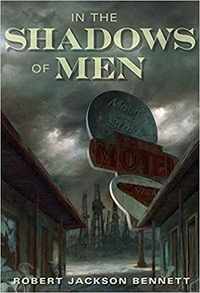The Forger's Daughter by Bradford Morrow
 Wednesday, September 9, 2020 at 7:58AM
Wednesday, September 9, 2020 at 7:58AM 
Published by Grove Atlanti/Mysterious Press on September 8, 2020
The Forger’s Daughter is a sequel to Bradford Morrow's The Forgers. Like the novel it follows, The Forger’s Daughter is a literary suspense novel. Since the relevant plot details of The Forgers are scattered through the sequel, it isn’t necessary to read the first novel to appreciate the second. While there is always some benefit to reading the first novel before reading the sequel, The Forger’s Daughter can be read as a standalone.
Will is no longer a forger. Instead, he works for an auction house, offering opinions about the authenticity of signatures. His wife owns a bookshop that specializes in rare books. His daughter Nicole has learned his skills as a forger, although she devotes her talent to assisting Will with the letterpress shop he operates. Will and Meghan have adopted a child named Maise whose true heritage is known to Meghan but not to Will.
In the first novel, a villain named Slader robbed Will of three fingers. Slader returns to blackmail Will with pictures that purport to show a crime that Will committed in the first novel. Slader has stolen a rare edition of Poe’s Tamberlane. He wants Will to replicate it so that the original can be replaced with a forged copy. The plan calls for Will to then alter the original a bit, to add Poe’s signature. and to forge an accompanying letter asking a reviewer to read it. Will agrees not just to avoid exposure but because of an implied threat that Maisie will be harmed if he refuses.
Will and Meghan narrate The Forger’s Daughter in alternating chapters. They tell their stories in the same voice, a fact that isn’t troublesome, given that both are well educated devotees of literature and are thus likely to share an elegant narrative style.
The two novels are something of an homage to Poe, particularly drawing uppon “The Purloined Letter,” a story in which the story’s hero, Auguste Dupin, creates a forgery. Apart from educating the reader with Poe lore, the novel offers some tips in the art of literary fakery, adding both interest and authenticity to the narrative.
The element of suspense in The Forger’s Daughter is low key. In fact, the novel as a whole might be characterized as low energy. It never creates the strong sense that anything bad will happen to anyone, apart from a cat that goes missing for a while. The characters, good and bad, are all very civilized, perhaps too well bred to behave violently, notwithstanding Slader’s amputation of Will’s fingers in the earlier book. Even when a moment of violence does arrive, the act is low key, the sort of thing that might be followed by a cup of tea (actually, it’s followed by a fine wine).
The novel’s value is found in its characterizations and prose more than its plot, and perhaps for its insights, some purloined from Poe. The ending of the sequel creates a pleasant symmetry between the two novels. The Forger’s Daughter tells an interesting story rather than a memorable one, but Morrow tells it very well.
RECOMMENDED



